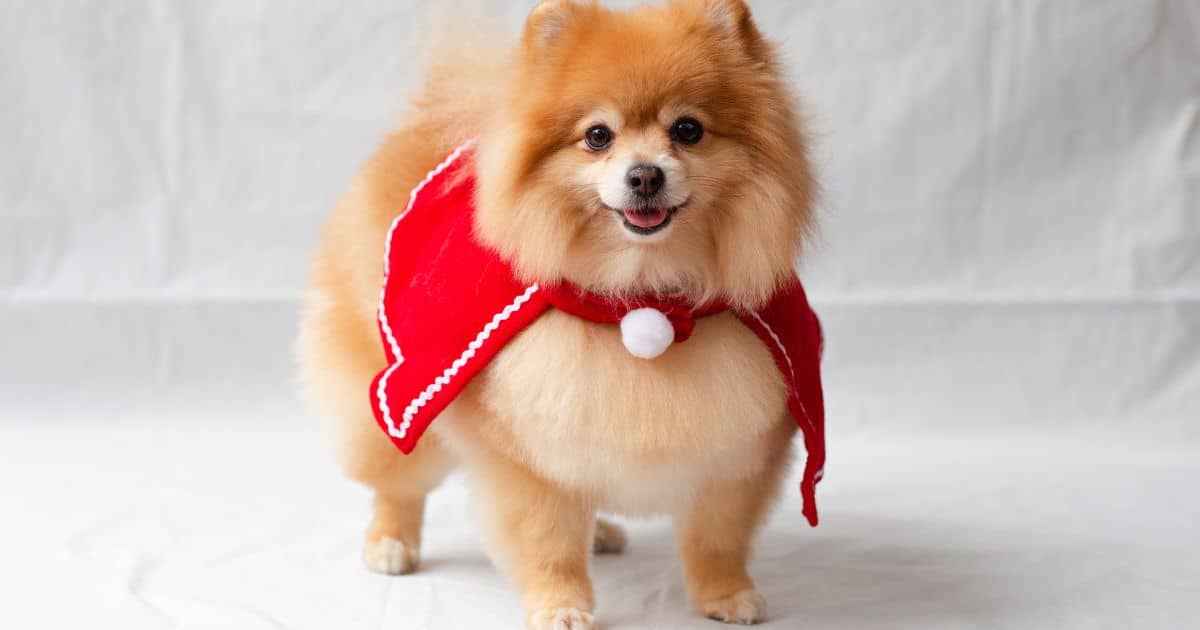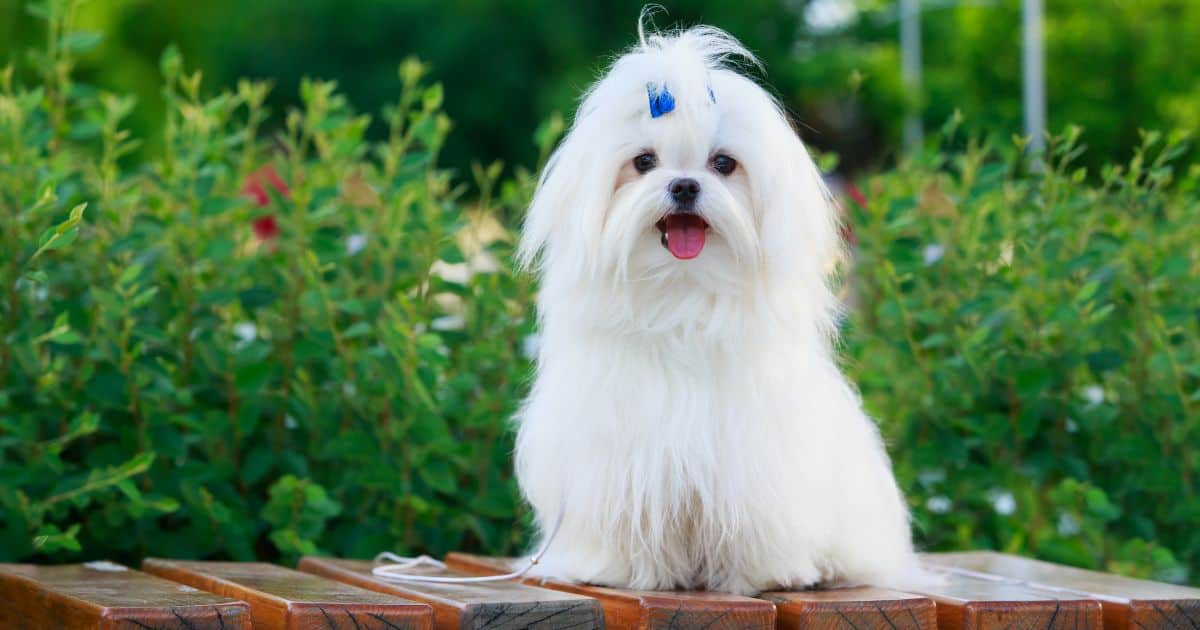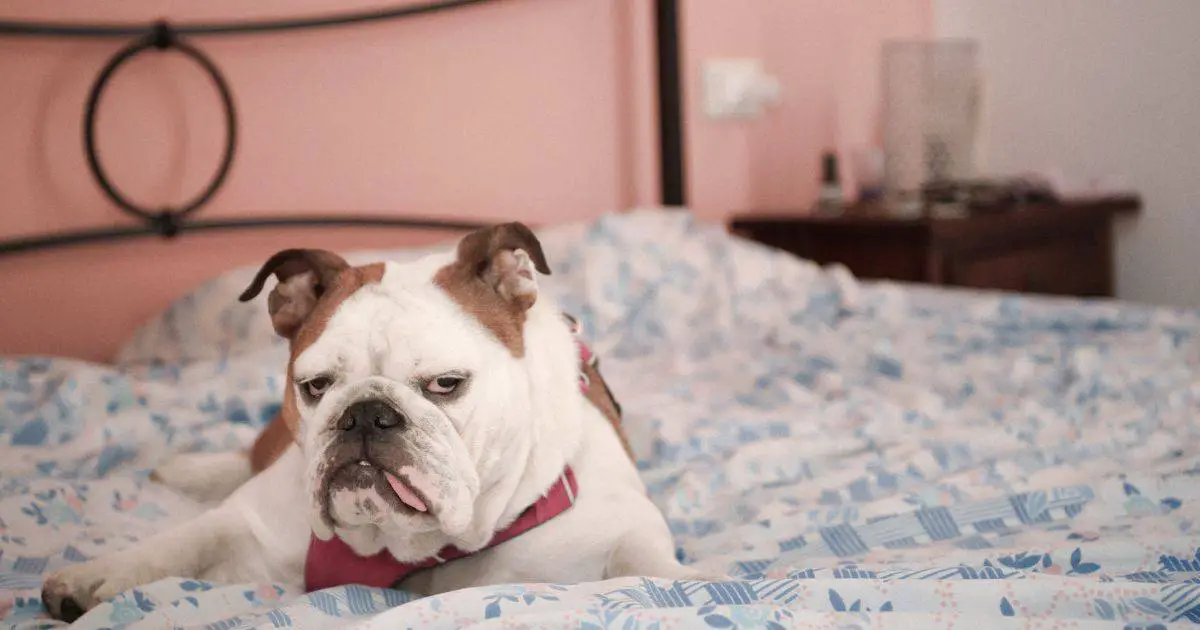Table of Contents
Bichon Frises are known for their lively personalities and affectionate nature. They are a popular breed among pet owners due to their adorable looks and playful behavior. However, one common question that many Bichon owners have is whether or not their furry friend cries.
The answer is yes, Bichons can cry, just like any other dog. However, the reasons behind their crying may vary. Some Bichons may cry because they are hungry, while others may cry due to separation anxiety or simply because they want attention. Understanding why your Bichon is crying can help you address the issue and make your furry friend happier.
Key Takeaways
- Bichon Frises can cry for a variety of reasons, including hunger, separation anxiety, and attention-seeking behavior.
- Understanding the reason behind your Bichon’s crying can help you address the issue and make your furry friend happier.
- Training your Bichon not to cry and creating a positive environment can help reduce crying behavior.
Understanding Bichon Frise Behavior
Bichon Frise is a charming and playful breed that makes a great companion for families and individuals alike. As a pet owner, it is essential to understand their behavior to provide them with the best care possible.
Bichon Frises are social creatures that crave attention and love to be around their owners. They are intelligent and obedient dogs that can be easily trained. They thrive in different environments and can adjust well to any home setting.
Body language is an essential aspect of understanding Bichon Frise’s behavior. They use their body language to communicate their emotions and feelings. For example, they may wag their tail when they are happy or excited and lower their ears when they are scared or anxious.
Bichon Frises are also vocal dogs that use their voice to communicate. They may whine or cry when they want attention or are trying to express their needs. It is essential to pay attention to their vocalizations to understand their behavior better.
Communication is key when it comes to understanding Bichon Frise’s behavior. They use different signals to communicate their needs, such as barking, whining, or crying. As a pet owner, it is crucial to pay attention to their signals to provide them with the best care possible.
In summary, Bichon Frise’s behavior is characterized by their social nature, intelligence, body language, and vocalizations. Understanding their behavior is essential to provide them with the best care possible. By paying attention to their signals and communicating effectively, you can build a strong bond with your furry friend.
Why Do Bichons Cry
Bichon Frises are known for their playful and joyful personalities, but sometimes they can be found crying or whining excessively. As a responsible pet owner, it is important to understand why your furry friend is crying and how to help them.
Physical Discomfort
One of the reasons why Bichons cries is due to physical discomfort. If your dog is experiencing pain, injuries, or any medical issues, they may cry or whine to communicate their distress. It is important to take them to the vet if you suspect any underlying medical conditions.
Hunger and Thirst
Another reason why Bichons cries is due to hunger or thirst. If your furry friend has not eaten or drunk anything for a long time, they may cry or whine to signal their needs. Make sure to provide them with enough food and water throughout the day to avoid hunger or thirst.
Separation Anxiety
Bichons are social creatures and love to be around people. If you leave your furry friend alone for a long time, they may start crying and whining, hoping that you will come back and give them some attention. Separation anxiety can be stressful for your dog, and it is important to provide them with enough attention and care.
Attention and Affection
Bichons are affectionate dogs and love to be around people. If they feel neglected or ignored, they may cry or whine to get your attention. Make sure to spend enough time with your furry friends and provide them with enough attention and affection.
In conclusion, Bichons may cry or whine for various reasons, including physical discomfort, hunger, thirst, separation anxiety, and attention. As a responsible pet owner, it is important to identify the underlying cause of their crying and provide them with the necessary attention and care they need.
Bichon Frise and Separation Anxiety
Do you worry about leaving your Bichon Frise alone? Separation anxiety is a common problem in dogs, and Bichon Frises are no exception. It’s important to understand the signs of separation anxiety and how to help your furry friend feel more comfortable when you’re not around.
Separation anxiety in Bichon Frises can manifest in many ways, including excessive barking, destructive chewing, and pacing. If your dog shows any of these signs, it may be experiencing separation anxiety.
Leaving your Bichon Frise alone for extended periods can be stressful for both you and your pet. Dogs are social animals, and they thrive on companionship, so being left alone can be distressing. However, there are things you can do to help your dog feel more comfortable when you’re not around.
One way to alleviate separation anxiety is to gradually get your dog used to being alone. Start by leaving your Bichon Frise alone for short periods, and gradually increase the time as your dog becomes more comfortable. Providing your dog with a comfortable and safe space, such as a crate or a designated room, can also help.
Another way to soothe your dog’s anxiety is to provide comfort and reassurance. Leaving a piece of clothing with your scent on it, or leaving on a TV or radio to provide background noise, can help your dog feel less alone.
It’s important to note that while these techniques can be effective, they may not work for every dog. If your Bichon Frise continues to show signs of separation anxiety, it may be necessary to seek professional support from a veterinarian or dog behaviorist.
Remember, separation anxiety is a common problem in dogs, and with patience and support, you can help your Bichon Frise feel more comfortable when you’re not around.
Attention-Seeking Behavior in Bichons
Bichon Frises are known for their affectionate and playful nature. They love to be around their owners and often crave attention. However, when they feel neglected or ignored, they can resort to attention-seeking behavior, including whining and vocalization.
If your Bichon Frise is crying or whining excessively, it may be a sign that they are feeling neglected or left alone for extended periods. They may also whine if they are not getting enough attention or if they are feeling anxious or stressed.
To prevent attention-seeking behavior in Bichon Frises, it is important to provide them with enough attention and care. Spend quality time with them, play with them, and give them plenty of affection. You can also provide them with toys and treats to keep them entertained when you are not around.
If your Bichon Frise continues to whine or cry excessively, it may be a sign of an underlying medical condition. In such cases, it is best to take them to a veterinarian for a check-up.
In conclusion, Bichon Frises are affectionate dogs that love attention. However, if they feel neglected or ignored, they can resort to attention-seeking behavior, including whining and vocalization. By providing them with enough attention and care, you can prevent such behavior and ensure that they remain happy and healthy.
Play and Excitement in Bichons
Bichon Frises are known for their playful and affectionate nature. They love to interact with their owners and enjoy playtime. Playing with your Bichon can be a great way to bond with them and provide them with the necessary exercise they need to stay healthy and happy.
One of the ways Bichons express their excitement is through their body language. They may wag their tails, jump up and down, or even do “zoomies” around the room. It’s important to provide them with a safe and secure environment to play in, so they don’t accidentally hurt themselves.
When playing with your Bichon, it’s essential to provide them with toys that are appropriate for their size and breed. Bichons love toys that they can chew on, tug at, or chase after. Interactive toys, such as puzzle games, can also be a great way to stimulate their minds and keep them mentally sharp.
Apart from playtime, Bichons also enjoy cuddles and affectionate interactions with their owners. They thrive on attention and love to be petted and snuggled. Spending quality time with your Bichon can help strengthen the bond between you and provide them with the emotional support they need.
In conclusion, Bichon Frises are playful and affectionate dogs that love to interact with their owners. Playtime, cuddles, and affectionate interactions are essential for their physical and emotional well-being. Providing them with a safe and stimulating environment to play in can help keep them happy and healthy.
Training Your Bichon Not to Cry
Training your Bichon Frise not to cry can be a challenging task, but with patience and positive reinforcement, you can help your furry friend overcome this behavior. Here are some tips to help you train your Bichon not to cry:
Positive Reinforcement
Positive reinforcement is a powerful tool in training your Bichon not to cry. Reward your dog for good behavior, such as staying quiet when you leave the house or not crying for attention. Use treats, toys, and praise to reinforce positive behavior.
Crate Training
Crate training can help your Bichon feel secure and comfortable when you are not around. Make sure the crate is the right size for your dog and provide comfortable bedding and toys. Use positive reinforcement to encourage your dog to go into the crate and stay quiet.
Routine
Establishing a routine can help reduce stress and anxiety in your Bichon Frise. Stick to a regular feeding and exercise schedule, and make sure your dog has plenty of opportunities to play and socialize.
Confidence
Building your Bichon’s confidence can also help reduce crying behavior. Encourage your dog to try new things, such as learning new tricks or exploring new environments. Use positive reinforcement to reward your dog’s efforts and build their confidence.
Good Behavior
Finally, it is important to address crying behavior when it occurs. Do not give in to your dog’s demands for attention, as this can reinforce crying behavior. Instead, use positive reinforcement to reward good behavior and teach your dog to self-soothe.
By using these training techniques, you can help your Bichon Frise overcome crying behavior and become a happy and well-behaved companion.
Bichon’s Environment and Its Effect on Their Behavior
As a Bichon Frise owner, it is essential to understand how your dog’s environment can affect their behavior. Boredom, lack of stimulation, and exercise can lead to destructive behaviors and excessive crying. On the other hand, a well-stimulated and exercised Bichon Frise is a happy and content dog.
One of the essential factors that affect a Bichon Frise’s behavior is their environment. Being left alone for extended periods can lead to separation anxiety, which can manifest itself in excessive barking, whining, or destructive behaviors. Therefore, it is crucial to provide your furry friends with mental stimulation and interactive toys to keep them entertained.
Bichon Frises are known to be playful and energetic dogs that require daily exercise to keep them happy and healthy. Lack of exercise can lead to obesity, which can cause health issues such as diabetes, heart disease, and joint problems. So, make sure to take your Bichon Frise for daily walks and playtime to keep them active and healthy.
Providing your Bichon Frise with interactive toys and puzzle toys can also help prevent boredom and destructive behaviors. These toys can stimulate their minds and keep them entertained for hours. Additionally, it is essential to rotate their toys regularly to prevent them from getting bored with the same toys.
In conclusion, a Bichon Frise’s environment plays a crucial role in their behavior. Providing mental stimulation, exercise, and interactive toys can help prevent boredom and destructive behaviors. So, make sure to create a happy and healthy environment for your furry friend to keep them happy and content.
When to Seek Professional Help
If your Bichon Frise is crying excessively and you are unable to determine the reason behind it, it may be time to seek professional help. While crying is a normal behavior in dogs, excessive crying can indicate underlying health issues or behavioral problems that require attention.
One of the first steps you should take is to schedule an appointment with a veterinarian. A veterinarian can rule out any medical issues that may be causing your Bichon Frise to cry excessively. Health issues such as allergies, infections, and dental problems can all cause discomfort and pain, leading to excessive crying.
If your veterinarian determines that there are no underlying medical issues, it may be beneficial to seek the help of a professional dog behaviorist. A behaviorist can help you identify any behavioral issues that may be causing your Bichon Frise to cry excessively. They can also provide guidance on how to manage and correct these behaviors.
Additionally, a professional trainer can help you teach your Bichon Frise appropriate behaviors and commands. This can help reduce crying and whining by providing your dog with a sense of structure and boundaries.
It’s important to note that patience and understanding are essential when managing your Bichon Frise’s behavior problems. With proper training and positive reinforcement, you can help improve your dog’s excessive crying and whining. If you are struggling to manage your Bichon Frise’s behavior problems, don’t hesitate to seek professional help.
FAQs
How long do bichons cry?
Bichons may cry for a few minutes or hours, depending on the situation. If they are left alone for a long time, they may cry until their owner comes back. Bichons may also cry if they are in pain or discomfort. If your bichon is crying excessively, it’s best to consult a veterinarian.
Do bichons cry at night?
Bichons may cry at night if they are feeling lonely or scared. They may also cry if they need to go outside to relieve themselves. To prevent crying at night, make sure your bichon has a comfortable and cozy sleeping area, and take them outside for a potty break before bedtime.
Do bichons whine a lot?
Bichons are known for being vocal and may whine or cry if they are feeling neglected or ignored. They may also whine if they are in pain or discomfort. However, excessive whining may be a sign of separation anxiety or other underlying health issues.
Do bichons get sad?
Bichons are social creatures and may get sad if they are left alone for extended periods or if they feel neglected. They may also get sad if they are experiencing a change in their environment or routine. It’s important to provide your bichon with plenty of love and attention to prevent them from feeling sad.
Why are bichons so needy?
Bichons are affectionate and social dogs that thrive on human interaction. They may become needy if they feel neglected or if they are not getting enough attention. It’s important to provide your bichon with plenty of love and attention to prevent them from becoming overly needy.
Are bichons sensitive?
Bichons are sensitive dogs that can pick up on their owner’s emotions. They may become anxious or stressed if their owner is feeling the same way. It’s important to provide your bichon with a calm and stable environment to prevent them from becoming overly sensitive.




Leave a Reply
You must be logged in to post a comment.